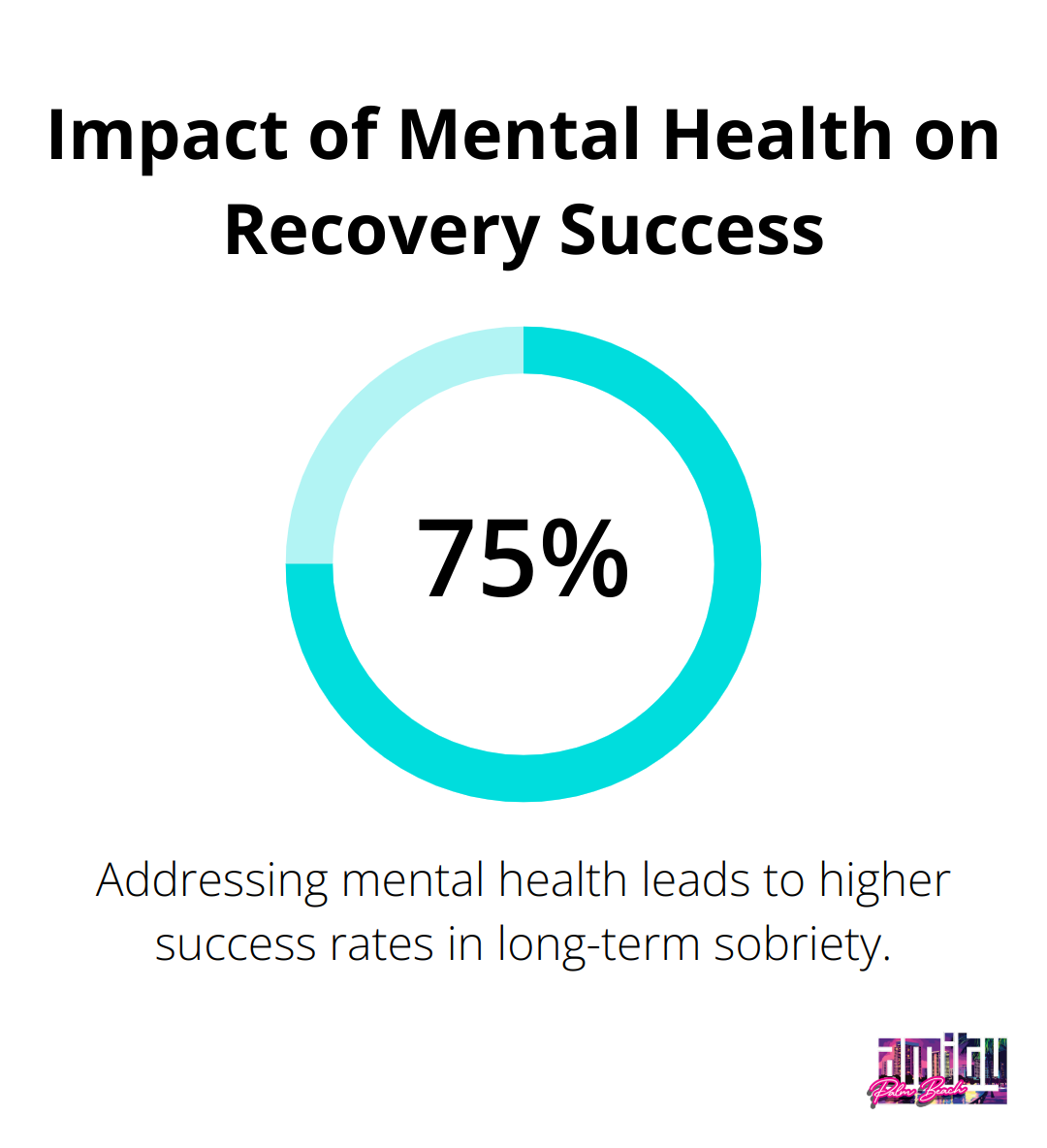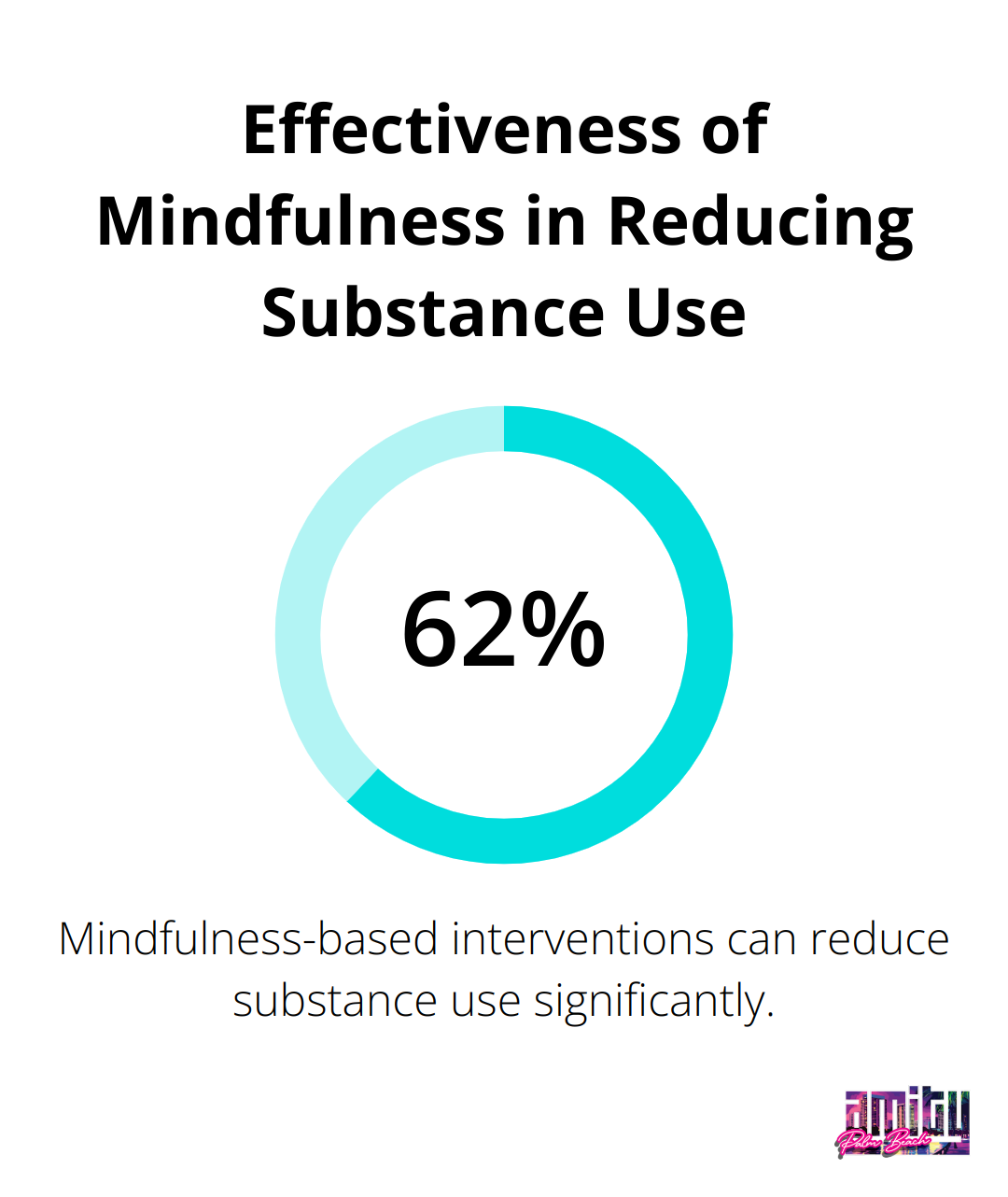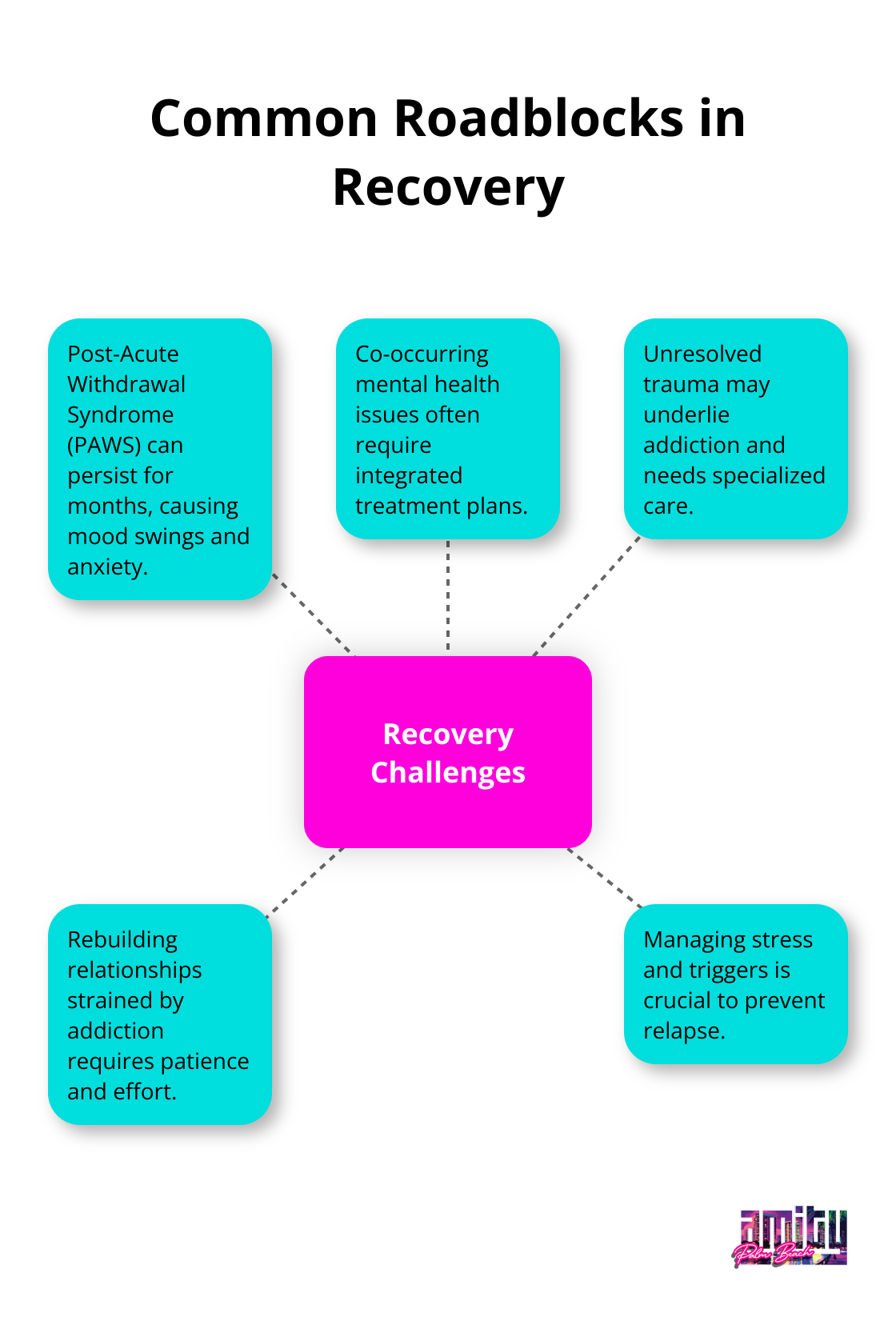At Amity Palm Beach, we understand the vital role of <a href=”https://share.google/V3Fb6lqR1VEcZD9gZ”>mental wellness</a> in the recovery journey.
The path to sobriety isn’t just about abstaining from substances; it’s about nurturing a healthy mind and spirit.
In this blog post, we’ll explore practical strategies to enhance your mental well-being and overcome common challenges during recovery.
Why Mental Wellness Matters in Recovery
The Mind-Body Connection in Recovery
At Amity Palm Beach, we witness the profound impact of mental wellness on a person’s recovery journey. Mental wellness forms the bedrock of lasting sobriety. Recovery transcends mere abstinence from substances; it involves healing your entire being.
When you focus on mental wellness, you equip your body and mind with essential tools for synergy. This harmony proves vital for long-term success. Studies consistently show that addressing mental health in recovery leads to higher success rates in long-term sobriety.

Building Resilience Through Mental Wellness
Mental wellness practices strengthen your resilience – your ability to overcome setbacks. Recovery presents challenges, but a solid mental wellness foundation prepares you to face these obstacles without resorting to substances.
The Ripple Effect of Mental Wellness
The benefits of prioritizing mental wellness extend beyond maintaining sobriety. You’ll likely notice improvements in your relationships, work performance, and overall quality of life.
Integrating Mental Wellness into Recovery
Many treatment programs (including those at Amity Palm Beach) integrate mental wellness into every aspect of their approach. From mindfulness exercises to cognitive behavioral therapy, these programs offer comprehensive toolkits for nurturing mental health.
The Journey Ahead
Recovery represents an ongoing journey, not a final destination. Prioritizing mental wellness sets you up for success not only in maintaining sobriety but also in creating a fulfilling, balanced life. As you move forward, the next crucial step involves exploring practical strategies to enhance your mental well-being and overcome common challenges during recovery.
Practical Tools for Mental Wellness in Recovery
At Amity Palm Beach, we’ve seen firsthand how practical mental wellness strategies can transform the recovery journey. Let’s explore actionable tools you can start using today to boost your mental wellness and support your sobriety.
Mindfulness: Your Daily Mental Reset
Mindfulness isn’t just a buzzword – it’s a powerful tool for recovery. Start with just 5 minutes a day of focused breathing. The UCLA Mindful Awareness Research Center offers free guided meditations to get you started. Try extending your practice to 15-20 minutes daily as you progress.
Many clients find that mindfulness helps them manage cravings more effectively. A study published in the Journal of Substance Abuse Treatment found that mindfulness-based interventions can reduce substance use by up to 62%.

Healthy Coping: Your Emotional Toolkit
Developing healthy coping mechanisms is essential for long-term recovery. Here are some practical strategies:
- Journaling: Spend 10 minutes each evening writing about your day. This helps process emotions and identify triggers.
- Creative outlets: Use art, music, or writing as a way to express difficult emotions.
- Physical activity: A 10-minute walk can boost mood and reduce stress.
- Grounding techniques: When overwhelmed, use the 5-4-3-2-1 technique. This simple yet powerful exercise uses your senses to anchor you in the present moment, helping you find some calm amidst the chaos.
Building Your Recovery Network
A strong support network is vital for mental wellness in recovery. Here’s how to build yours:
- Attend support group meetings regularly (try for at least 3 per week in early recovery).
- Identify 3-5 trusted individuals you can call when you’re struggling.
- Consider working with a therapist or counselor who specializes in addiction recovery.
- Join online recovery communities for additional support.
Building a network takes time. Be patient with yourself as you form these connections.
Sleep and Nutrition: Foundations of Mental Health
Quality sleep and proper nutrition are often overlooked in recovery, but they’re crucial for mental wellness. Try to get 7-9 hours of sleep per night and establish a consistent sleep schedule.
For nutrition, focus on whole foods, plenty of fruits and vegetables, and adequate hydration. The National Institute on Drug Abuse recommends a diet rich in omega-3 fatty acids (found in fish, flaxseeds, and walnuts) to support brain health during recovery.
These practical strategies can significantly enhance your mental wellness and support your recovery journey. As you cultivate these habits for long-term success, it’s important to recognize that challenges may arise. In the next section, we’ll address common obstacles to mental wellness in recovery and provide strategies to overcome them.
Navigating Recovery Roadblocks
Recovery presents both triumphs and challenges. At Amity Palm Beach, we guide individuals through obstacles that threaten mental wellness during recovery. Let’s explore common hurdles and practical strategies to overcome them.

Post-Acute Withdrawal Syndrome (PAWS)
PAWS can persist for months after detox, causing mood swings, anxiety, and sleep disturbances. To manage PAWS effectively:
- Track your symptoms with a mood journal or app (like Daylio).
- Establish a consistent sleep schedule. Try to sleep 7-9 hours nightly.
- Practice deep breathing when anxiety strikes. The 4-7-8 technique (inhale for 4 seconds, hold for 7, exhale for 8) proves particularly effective.
Co-occurring Mental Health Issues
Many individuals in recovery also face mental health disorders. Treatment for dual diagnosis depends on the individual needs of a person with co-occurring disorders. To manage this:
- Work with a dual diagnosis specialist to create an integrated treatment plan.
- Consider cognitive-behavioral therapy (CBT) to address both addiction and mental health symptoms.
- If prescribed medication, adhere strictly to your regimen. Communicate any side effects to your healthcare provider.
Healing from Trauma
Unresolved trauma often underlies addiction. To address this:
- Seek trauma-informed care from a qualified therapist.
- Try EMDR (Eye Movement Desensitization and Reprocessing) therapy (which has shown promising results for trauma recovery).
- Practice grounding techniques when triggered.
Rebuilding Relationships
Addiction strains relationships, making social situations challenging in recovery. To navigate this:
- Attend family therapy sessions to rebuild trust and improve communication.
- Practice assertiveness skills to set healthy boundaries.
- Engage in sober activities with supportive friends or join recovery-focused social groups.
Managing Stress and Triggers
Stress often triggers relapse. To cope:
- Develop a personalized stress management plan with your therapist.
- Incorporate regular exercise into your routine.
- Learn and practice progressive muscle relaxation to physically release tension.
Each obstacle you face and conquer strengthens your resilience and commitment to mental wellness. At Amity Palm Beach, we support you every step of the way, providing the tools and guidance you need to navigate these roadblocks successfully.
Final Thoughts
Prioritizing mental wellness forms the cornerstone of successful recovery. We at Amity Palm Beach combine evidence-based treatments with personalized care to address addiction and co-occurring mental health issues. Our approach supports you through every phase of your journey to wellness and lasting recovery.
Your path to mental wellness and recovery is unique, and you may face challenges along the way. Persistence, self-compassion, and the right resources will help you cultivate lasting calm and build a life you love in recovery. Engage in activities that promote mental wellness, such as regular exercise, creative pursuits, or volunteering.
Seeking help demonstrates strength, not weakness. If you struggle with your mental wellness or recovery, reach out for professional support. You deserve a life of health, happiness, and fulfillment-and with the right tools and support, you can achieve it. Contact Amity Palm Beach today to start your journey towards lasting recovery and improved mental health.




